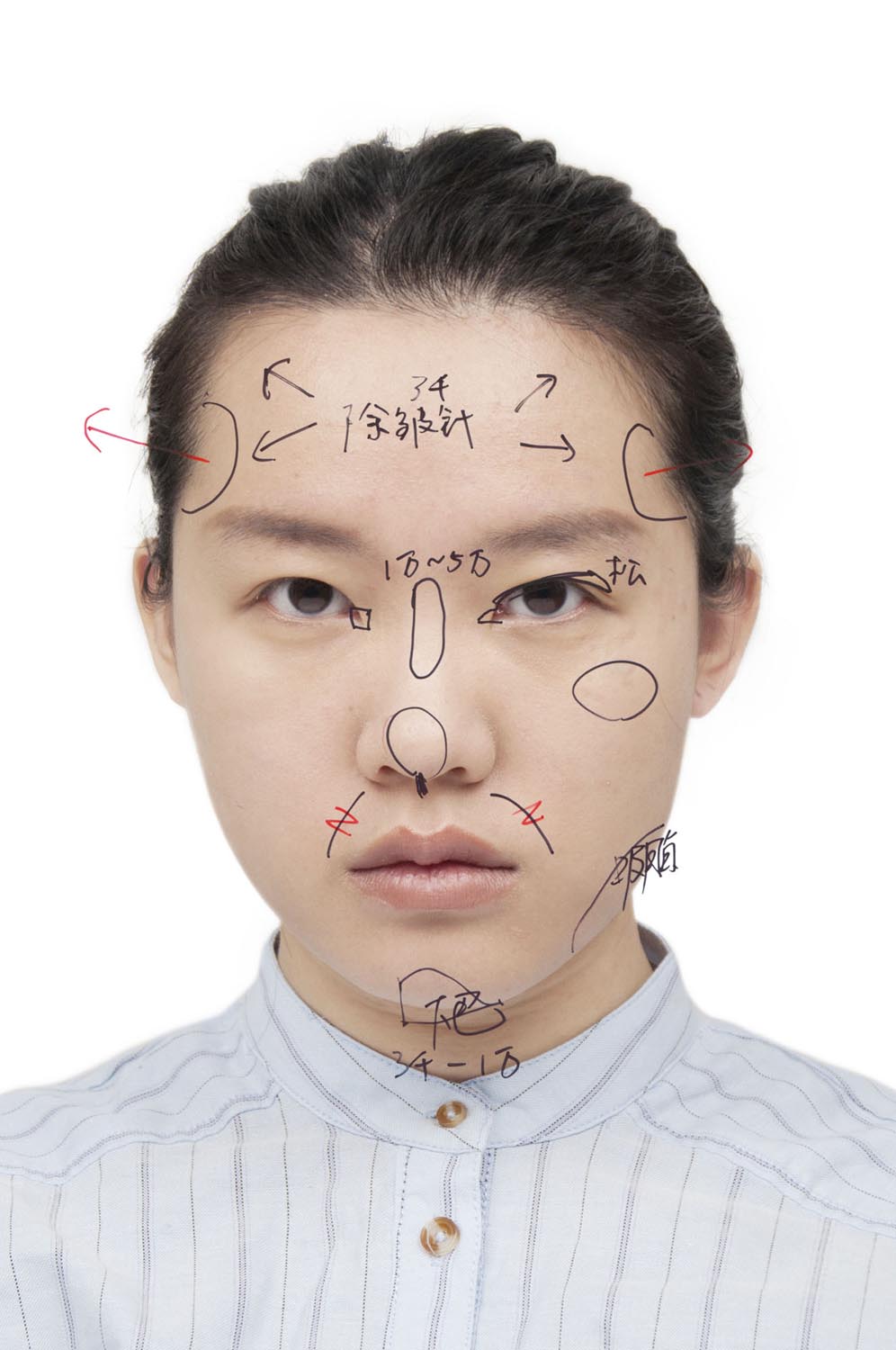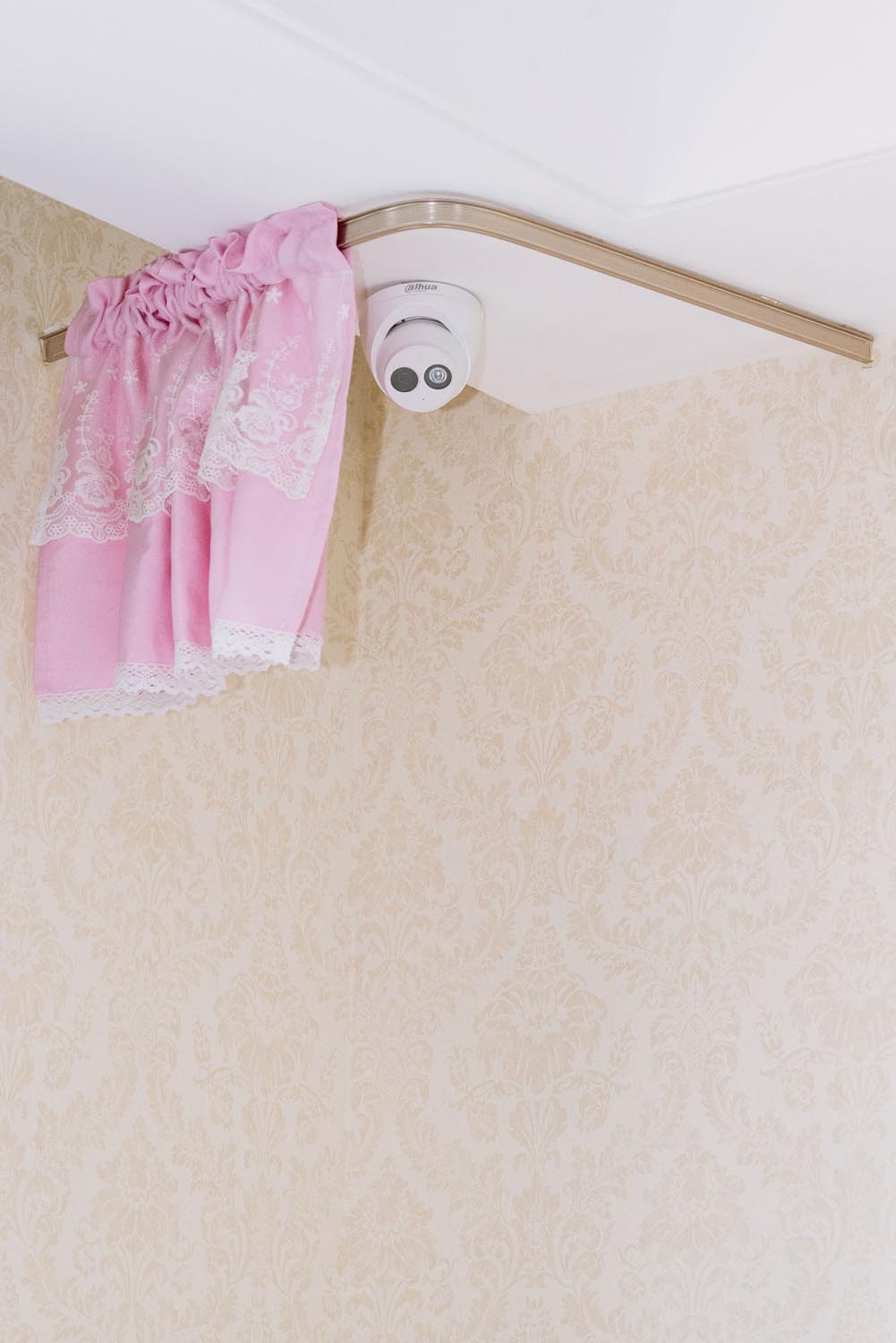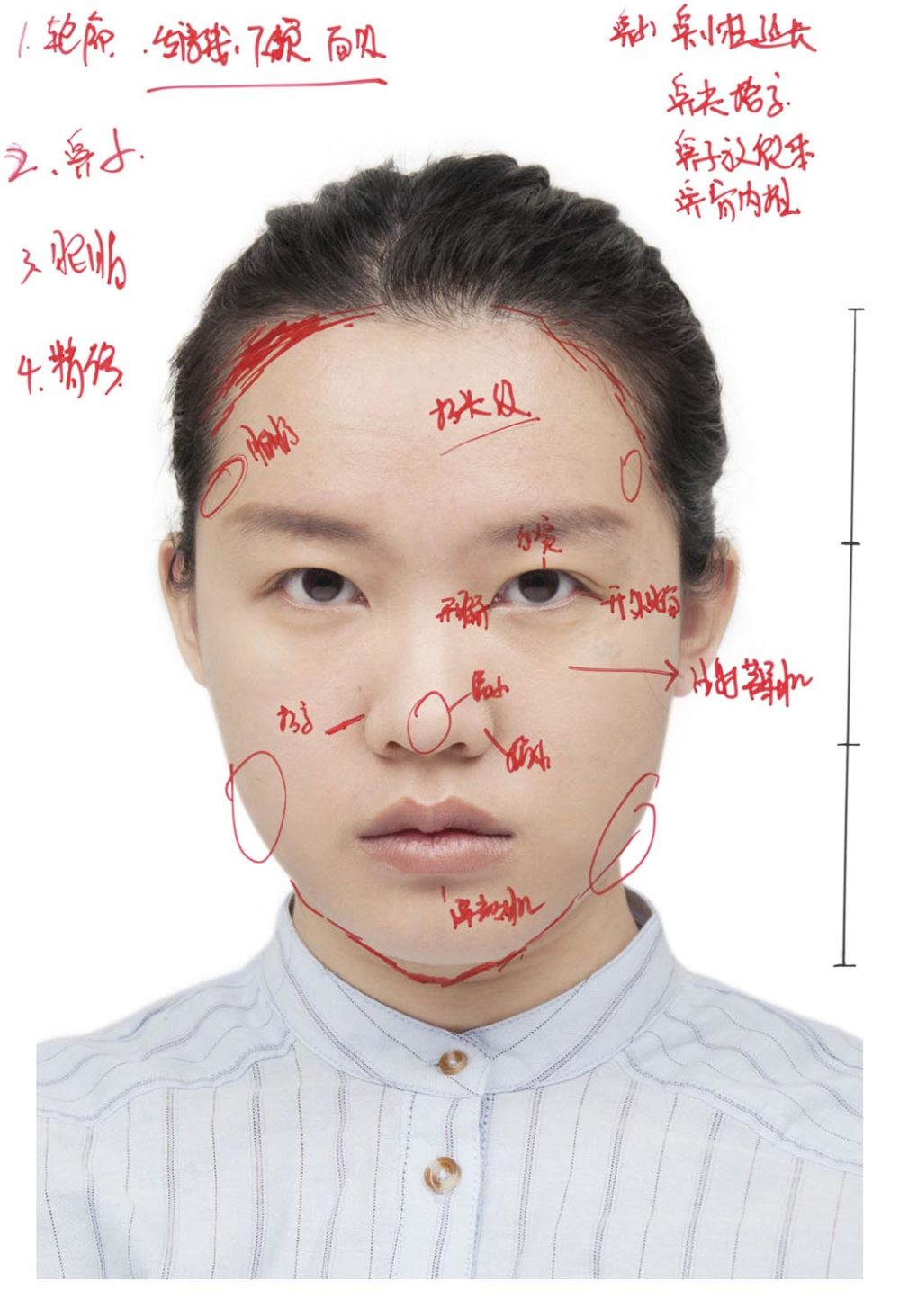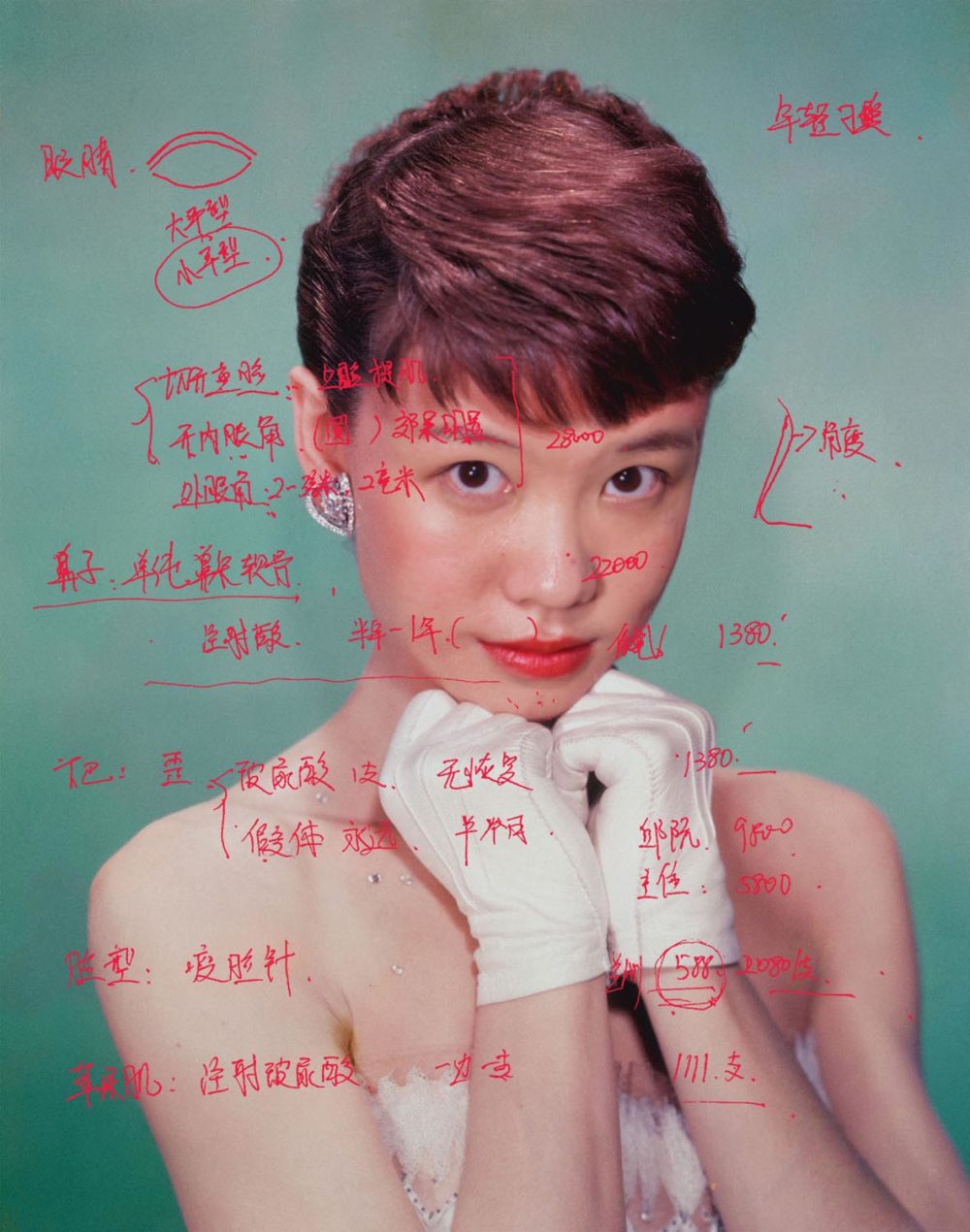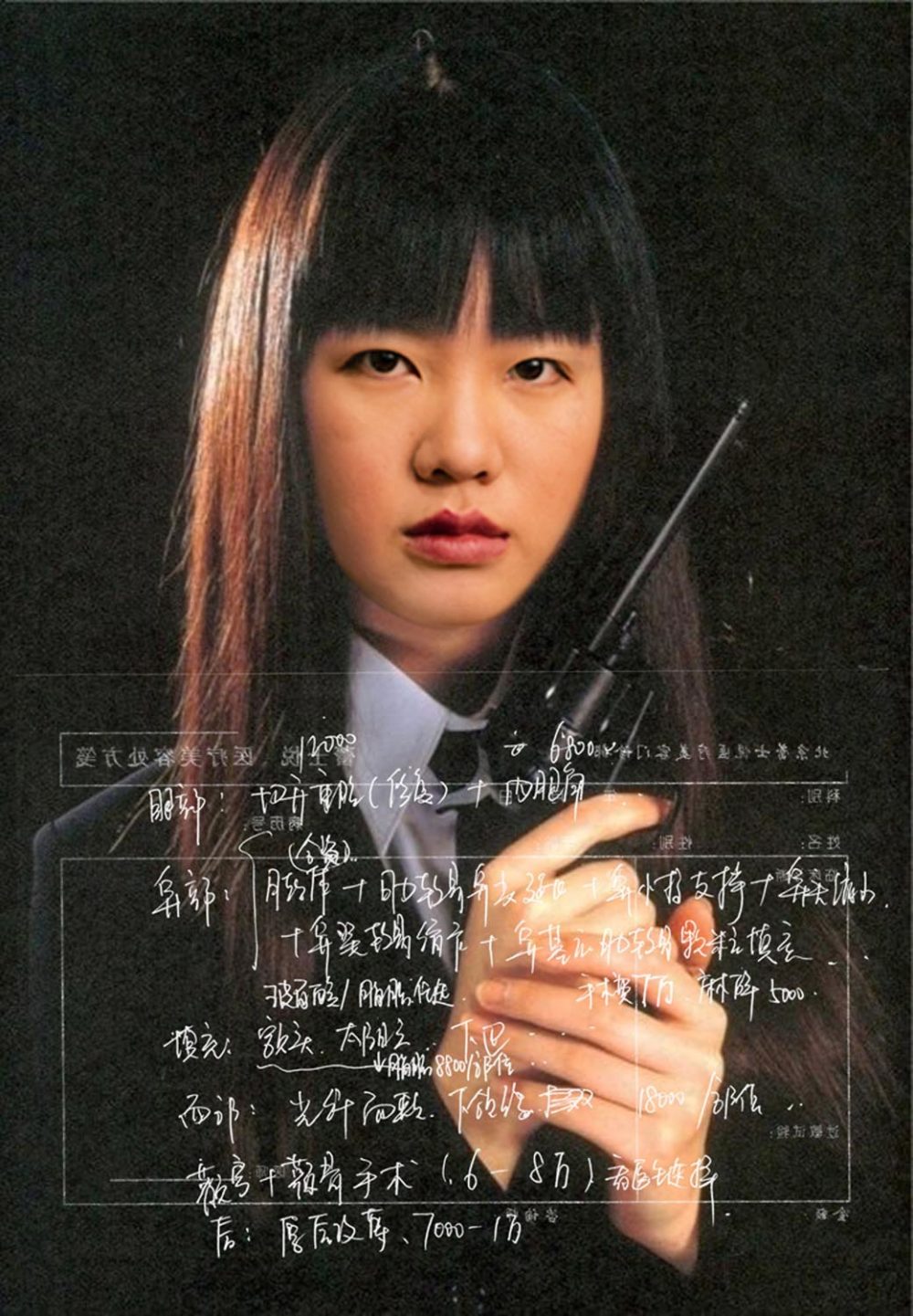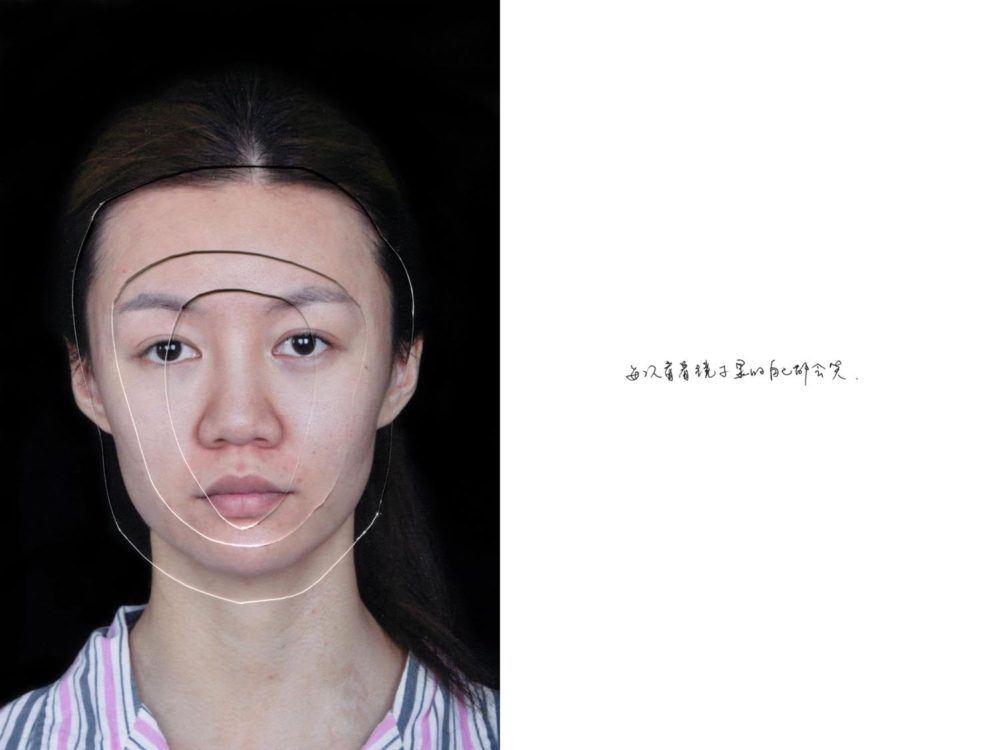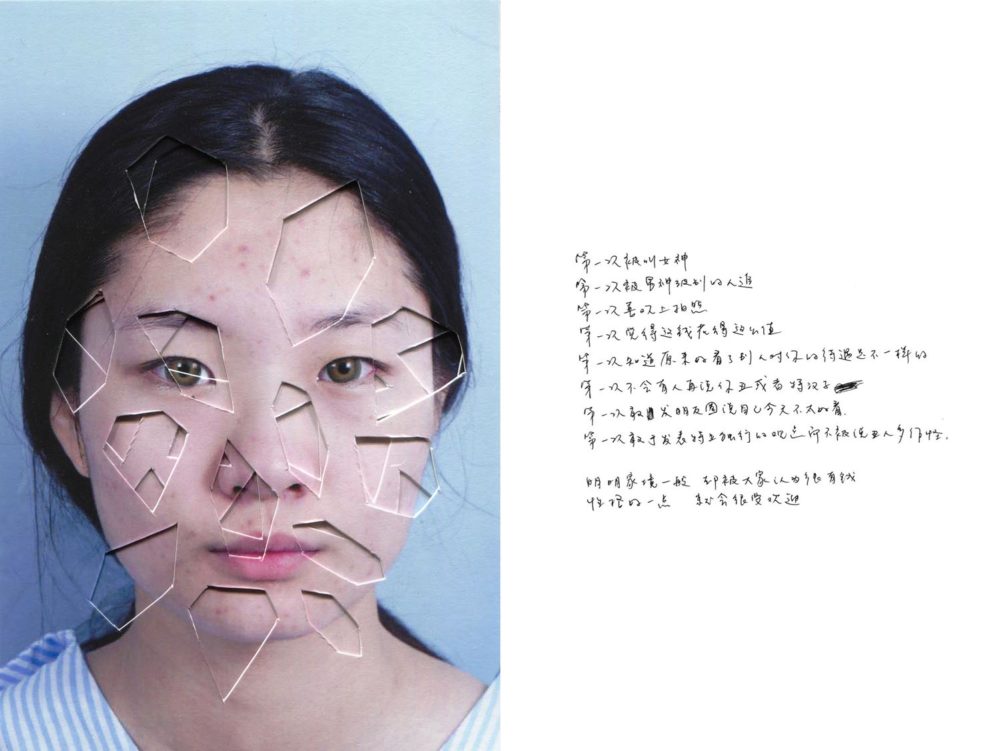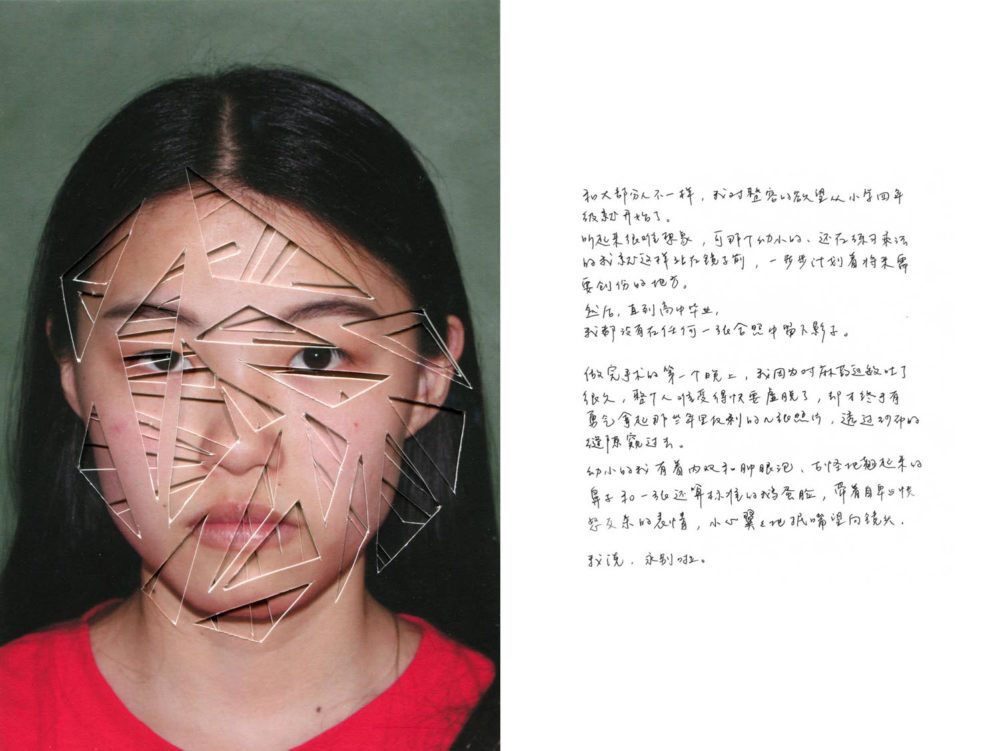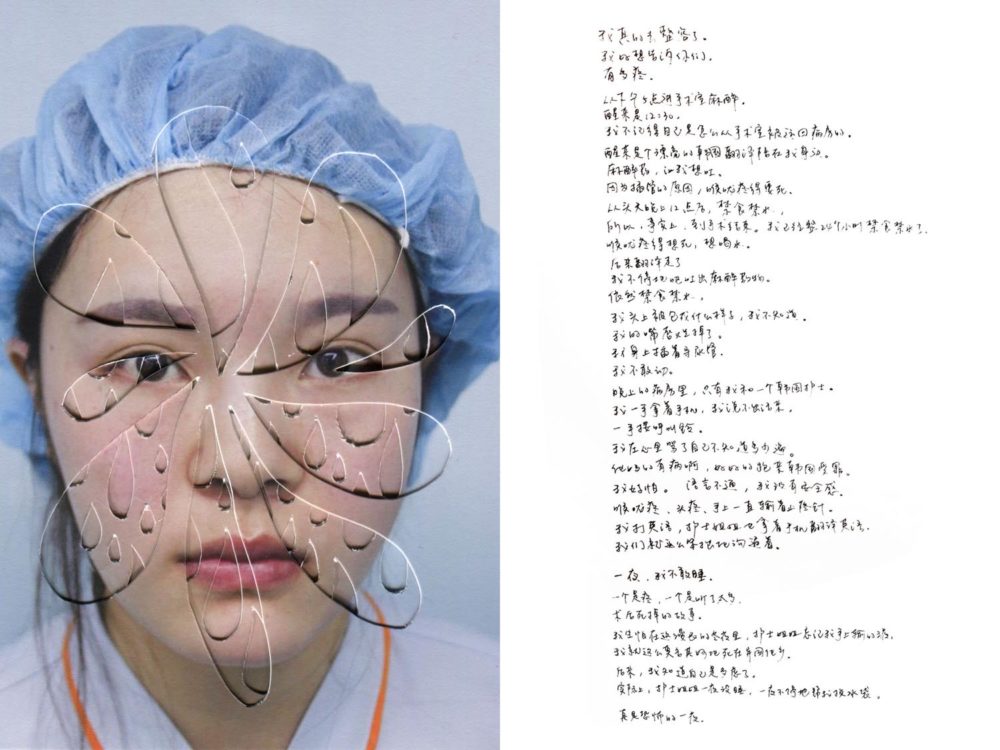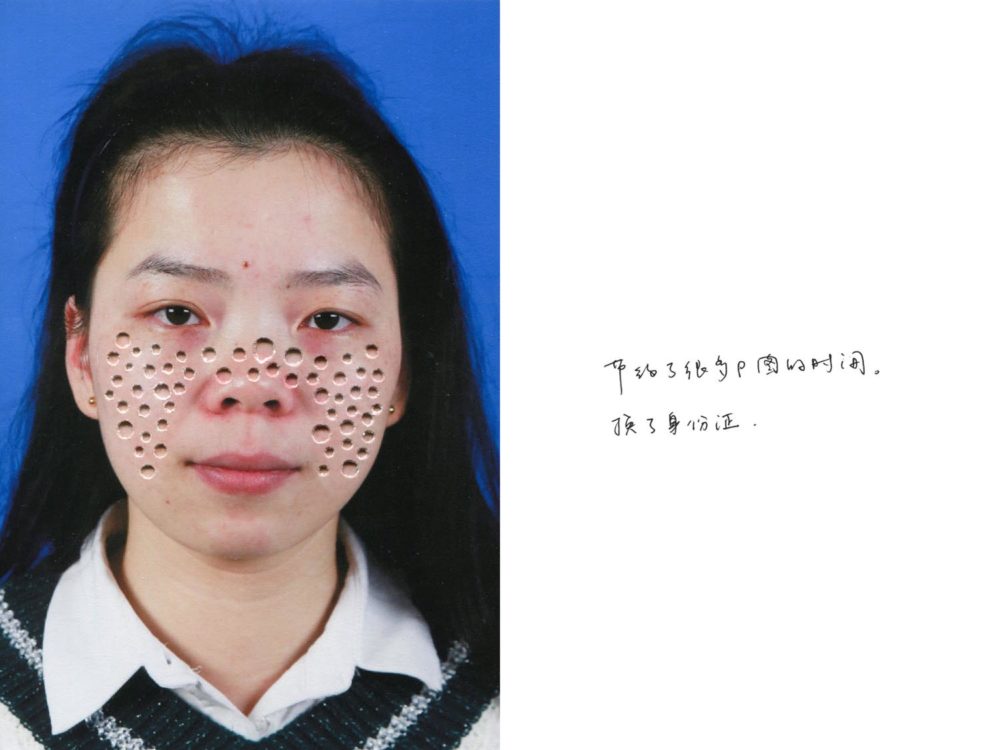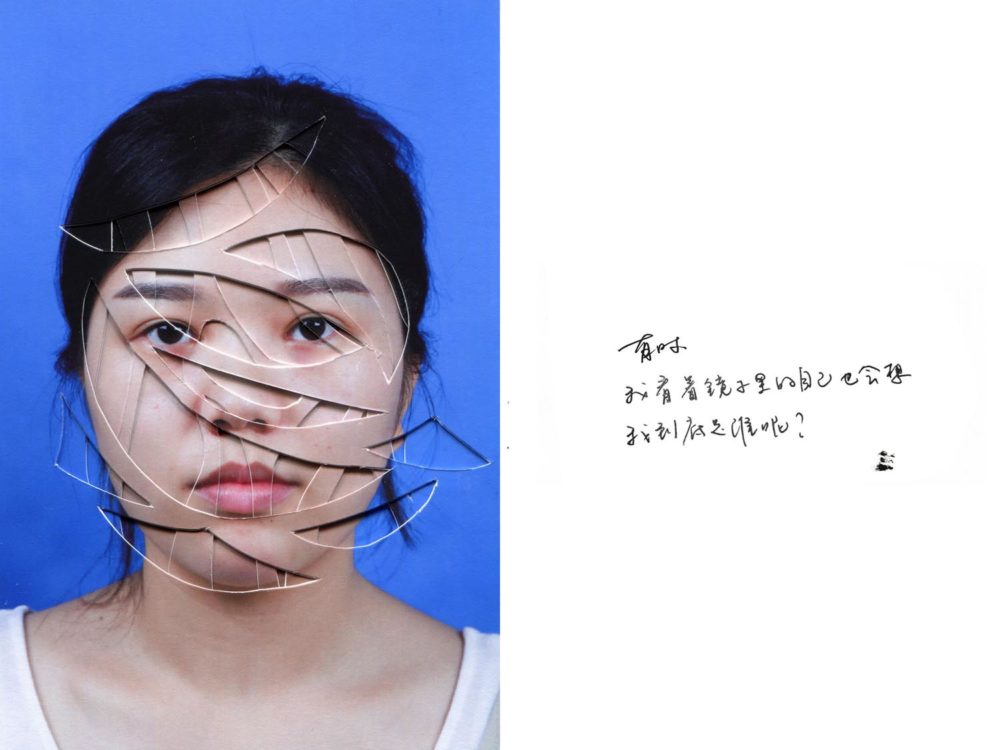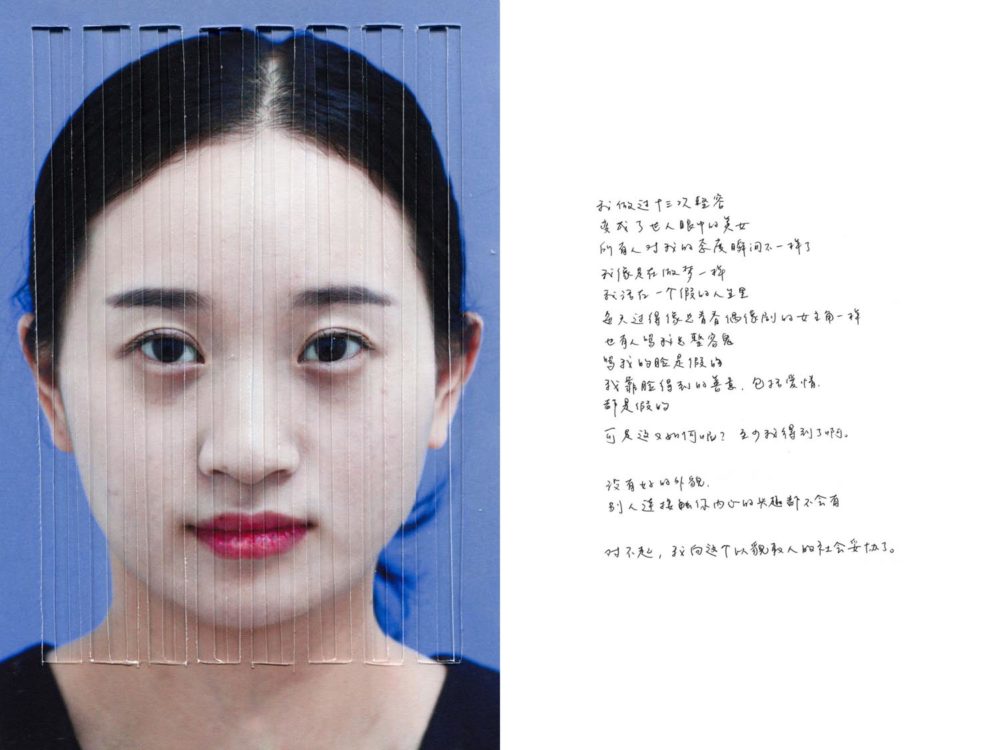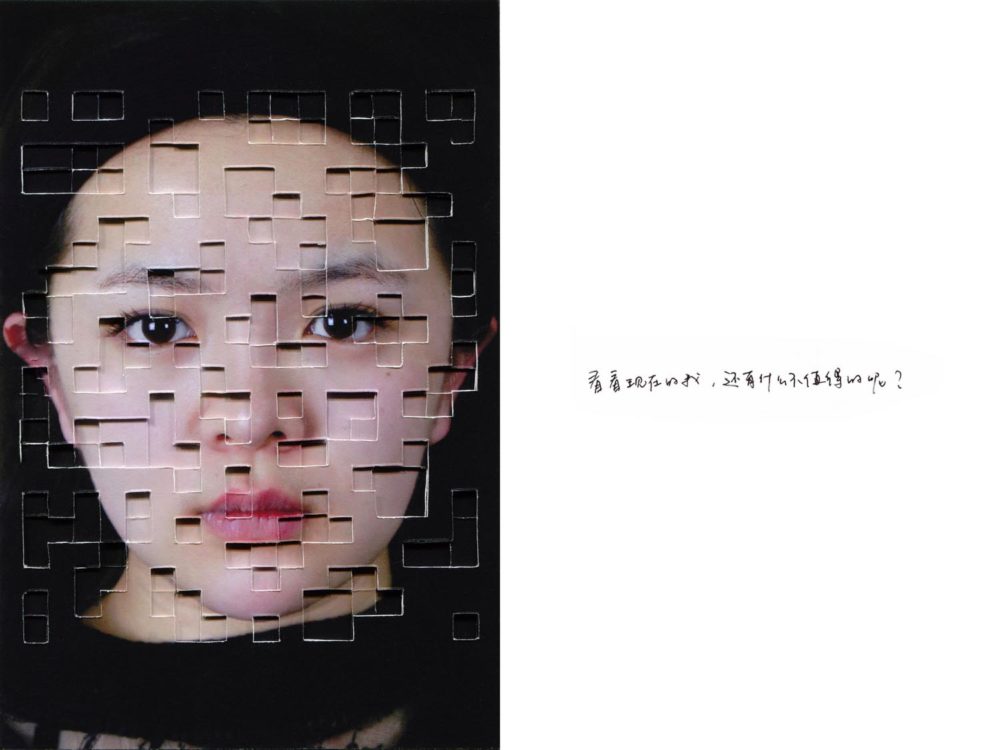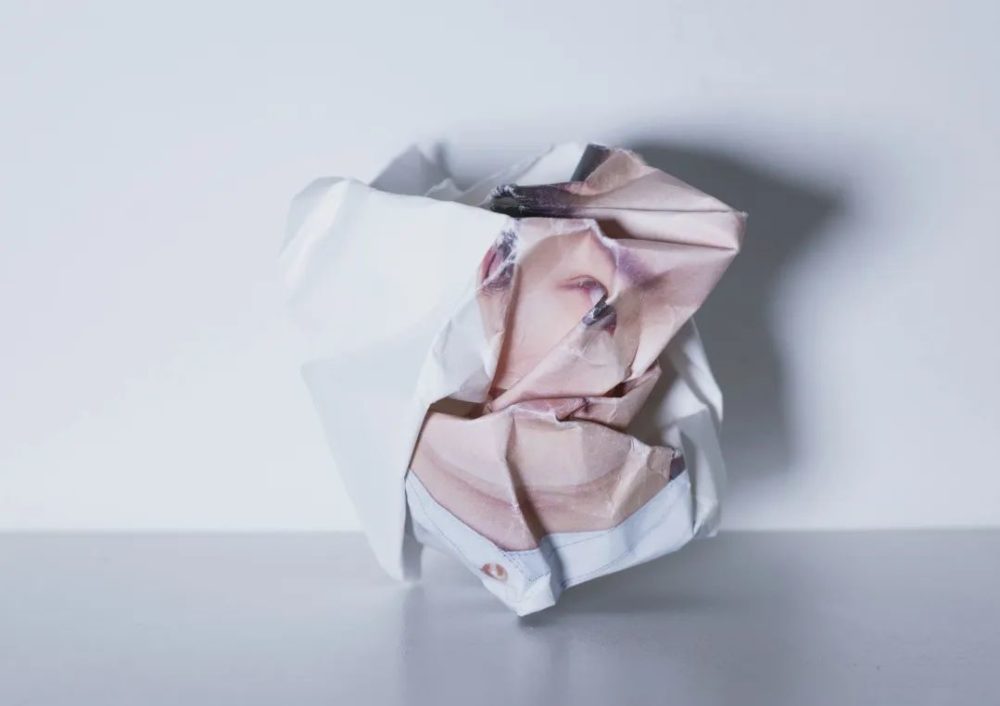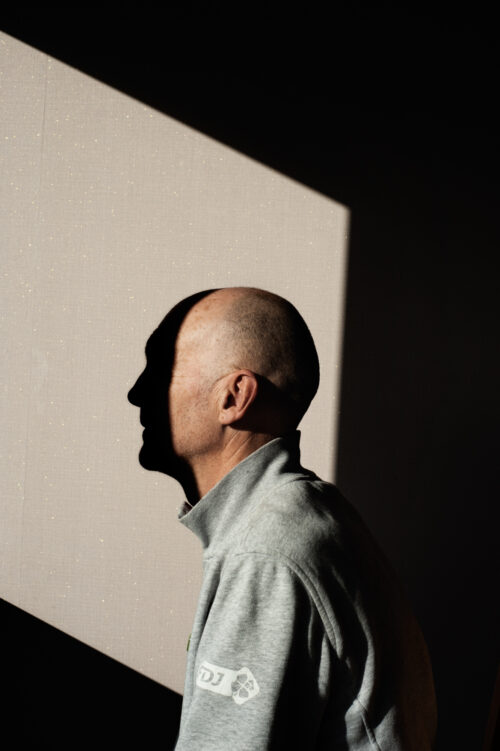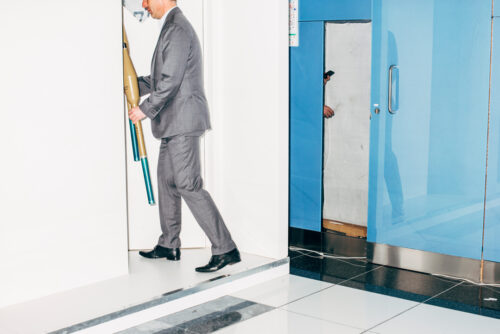Picture Series
Yufan Lu Make Me Beautiful
More than ten million people in China undergo cosmetic surgery every year because they want to decide for themselves how their faces will look. With this story, Yufan Lu attempts to understand the mechanisms behind this desire. She visits several cosmetic surgeons to make an operation plan for her own face. After her “beauty defects” are recorded, she can choose from the most popular types of face – as if her face were the only obstacle on the path to a perfect life. The photographer has compiled her own “facial diagnoses” and taken photos in cosmetic surgery practices. Lu shows “before” photos that she finds on specialist websites and, using a knife, adds various patterns to these pictures. Afterwards, she adds to every photo a statement from a person who has undergone cosmetic surgery. Some of her photos are reminiscent of death masks that allude to what has been lost. But they offer more: hope, closure and a certain mystery.
- Artificiality
- Beauty
- Optimisation
- Surface
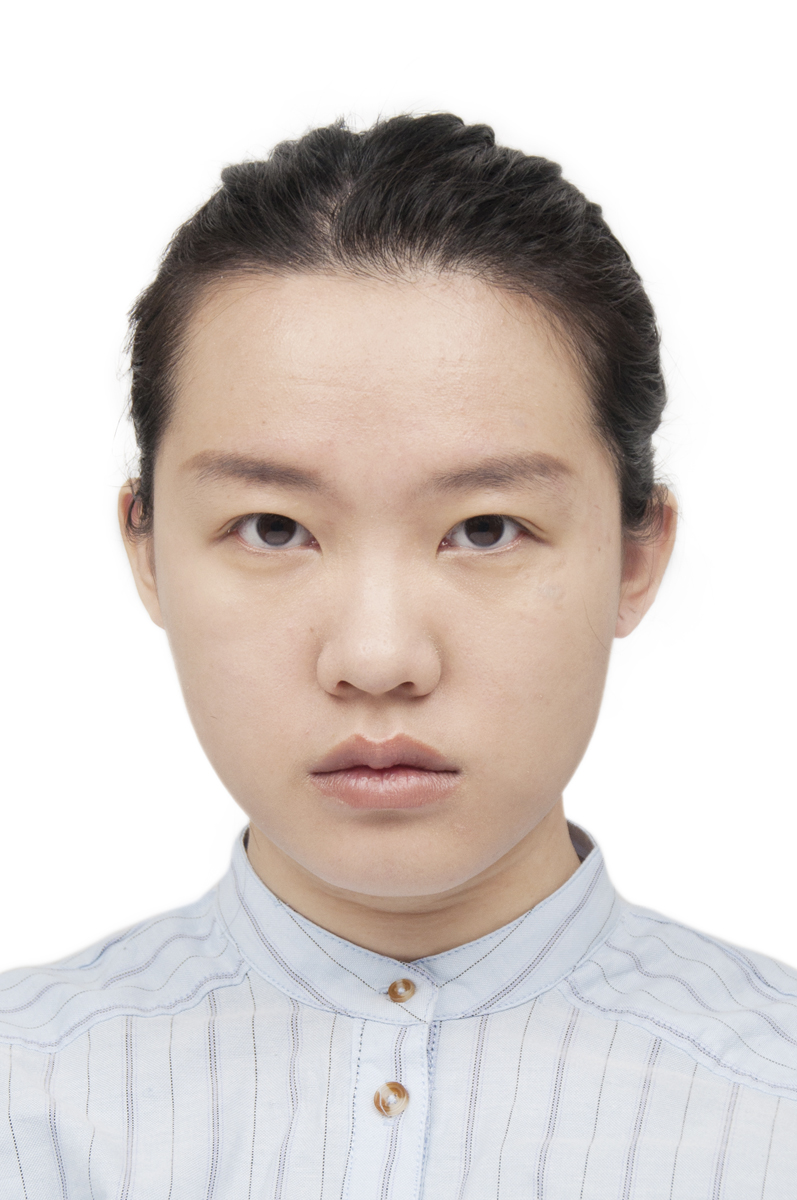
*1991 in Beijing, China
Yufan Lu completed her studies in 2017 with an MA in Photography and Urban Cultures from Goldsmiths, University of London. Her work addresses the urban, particularly urban identities, the relationships between people and places, as well as the exploration of their emotional states.


